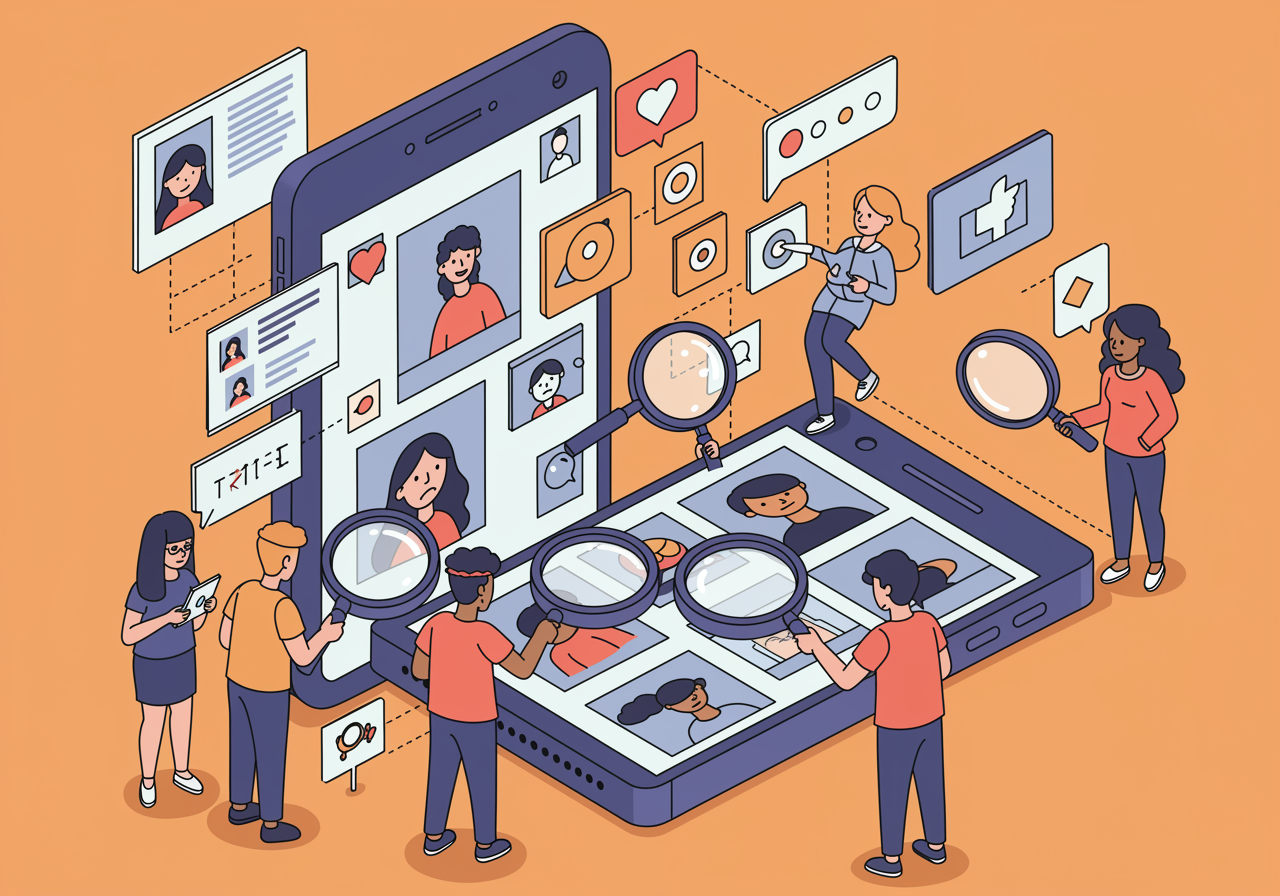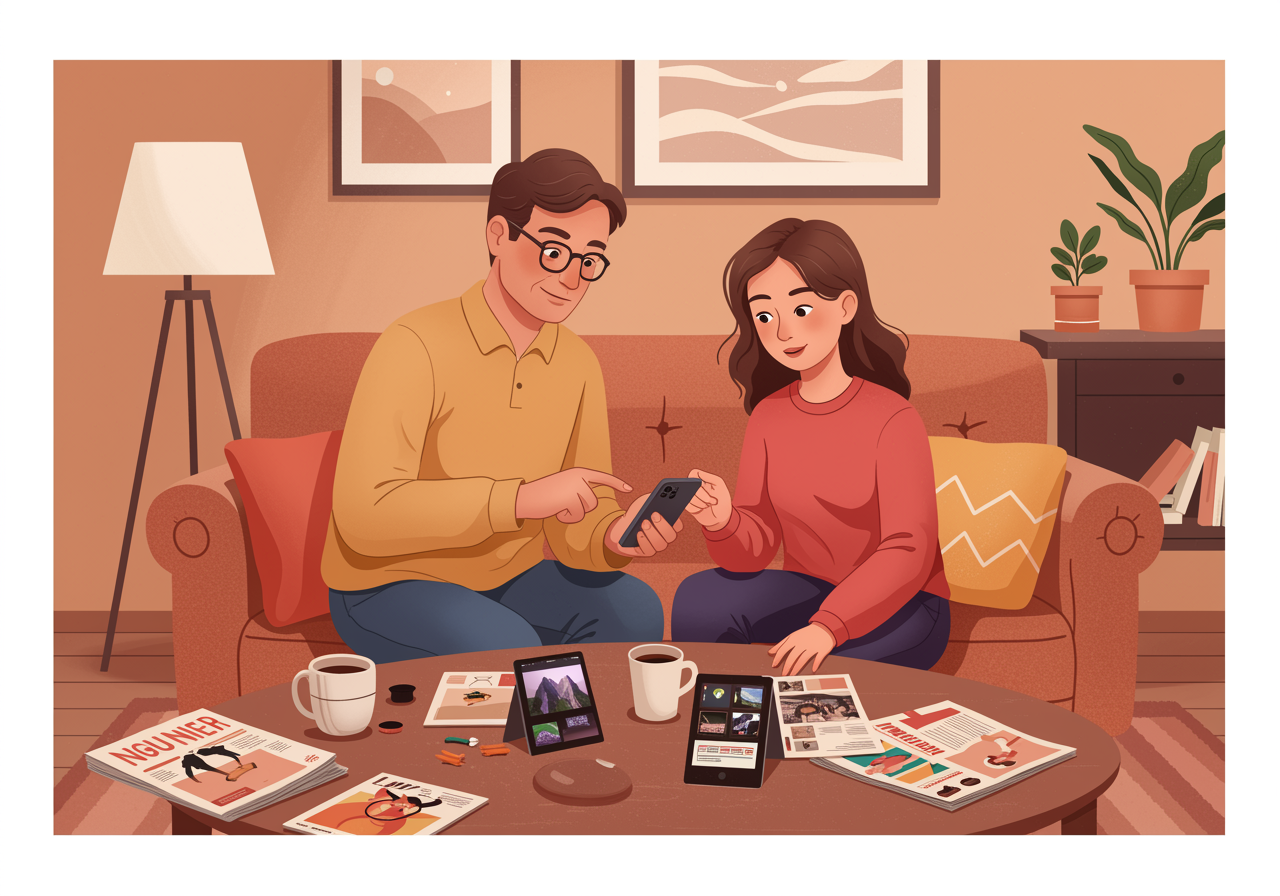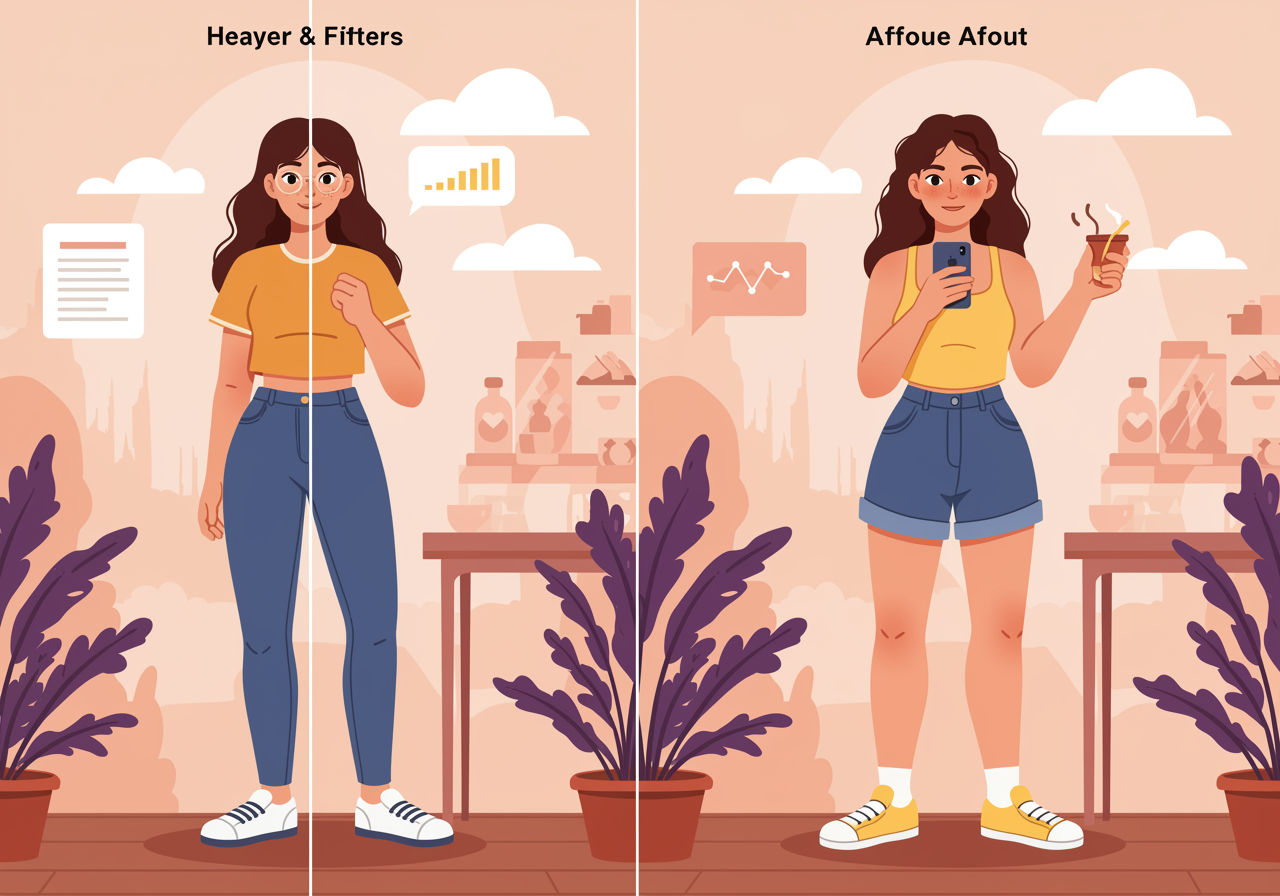Becoming a Beauty Detective: Cracking the Code of Social Media Images

How to spot the tricks and build real confidence in a filtered world
Discover how to help your teen develop superhero-like skills to see through digital magic and build genuine self-confidence.
Overview
Think about it – your teen probably sees hundreds of 'perfect' images every day on social media. But here's the wild part: most of those images aren't even real! They're edited, filtered, and posed in ways that would make a movie special effects team jealous. This isn't about banning social media – it's about turning your teen into a savvy detective who can spot the tricks and build real confidence that comes from understanding how the digital world actually works.

Understand in 30 Seconds
Get up to speed quickly
- The Filter Reality Check: Most social media photos use filters, editing, or perfect lighting that completely change how people really look. It's like comparing yourself to a cartoon character!
- Your Brain on Comparison: When we constantly see 'perfect' images, our brains start thinking that's normal and real, even when it's not. It's like optical illusion for our self-esteem.
- The Algorithm Game: Social media platforms show us content designed to keep us scrolling, not necessarily what's healthy or realistic for us to see.
- Real Beauty is Diverse: Beauty comes in every shape, size, color, and style imaginable – but social media algorithms often show us a very narrow version of what's 'beautiful.'
Real Life Scenario
Situations you can relate to
Imagine you're at a magic show, and the magician makes a rabbit disappear. Pretty cool, right? But you know it's a trick – you don't go home thinking rabbits actually vanish into thin air! Social media images work the same way. When someone posts a photo, they might use special lighting, take 50 shots to get the perfect angle, add filters that smooth skin and change face shapes, or even use apps that completely reshape their body. It's digital magic! The problem happens when we forget we're watching a magic show and start thinking the tricks are real life. Have you ever noticed how different you look in your front-facing camera versus your bathroom mirror? Which one is the 'real' you?

Role Play
Spark a conversation with “what if” scenarios
What if you were a detective hired to figure out what's real and what's edited in social media photos?
- Role play: Look at magazine ads or social media posts together and play 'spot the editing.' Look for impossibly smooth skin, missing belly buttons, or backgrounds that bend in weird ways around bodies.
What if you had to create a 'perfect' social media post using only tricks photographers use?
- Role play: Try taking the same photo with different lighting, angles, and poses. See how dramatically different the same person can look! No editing apps needed.
What if you were designing an app that actually made people feel good about themselves?
- Role play: Brainstorm features that would celebrate real diversity and authentic moments instead of 'perfect' filtered images. What would your app prioritize?
FAQs
Frequently asked questions people want to know
Is it wrong to use filters or editing apps?
Not at all! Filters can be fun, like digital makeup or costumes. The key is knowing when you're using them and not comparing your real self to filtered versions of others.
How can I tell if an image is heavily edited?
Look for super smooth skin with no pores, impossibly tiny waists, missing belly buttons, bendy backgrounds, or lighting that doesn't make sense.
Why do people edit their photos so much?
Often because they're comparing themselves to other edited photos! It becomes a cycle where everyone's trying to match impossible standards that aren't even real.
Examples in the Wild
See how this works day to day
- Norway became the first country to require influencers to label when photos are modified or retouched, helping viewers understand what's real (BBC News, 2021)
- A study found that teens who spent more time on image-focused social media platforms reported lower body satisfaction than those using text-based platforms (American Psychological Association, 2022)
- Instagram began testing hiding 'like' counts in some countries to reduce social comparison and pressure among users (TechCrunch, 2021)
- Dove's 'Real Beauty' campaign showed how dramatically photo editing can change appearance, using time-lapse videos of the editing process (Dove Campaign for Real Beauty, 2013-present)
In Summary
What you should know before you start
- Most social media images are digitally enhanced, filtered, or carefully staged – they're not showing real, everyday life
- Our brains aren't designed to handle constant comparison to 'perfect' images, which can affect how we see ourselves
- Developing 'detective skills' to spot editing and manipulation helps us enjoy social media without letting it hurt our self-image
- Real beauty and worth come from who we are as people, not how we look in carefully crafted photos
Pro-tip for Parents
You got this!
If your teen seems down after social media time, don't immediately blame the platform or lecture about 'real beauty.' Instead, get curious together! Ask questions like 'What did you see that was interesting?' or 'Did anything seem too good to be true?' Help them become critical thinkers rather than just telling them what to think. Remember, they're growing up in a digital world, so digital literacy is just as important as any other life skill.

Keep an Eye Out For
Find these examples in everyday life
- News stories about social media platforms adding 'edited photo' labels or mental health features
- Times when your teen seems particularly focused on their appearance after social media use
- Opportunities to discuss unrealistic beauty standards in movies, TV shows, or advertisements you see together
Explore Beyond
Look up these related research topics
- How artificial intelligence and deepfakes are changing what we can trust in digital media
- The psychology of social comparison and why our brains are wired to compare ourselves to others
- How different cultures around the world define beauty and self-worth